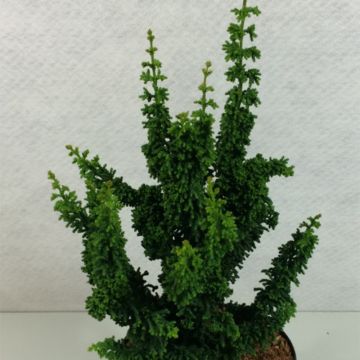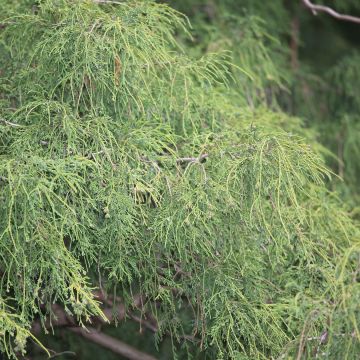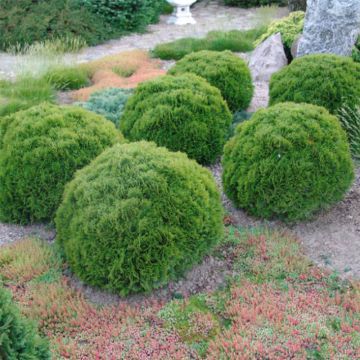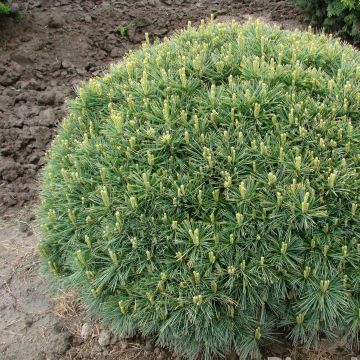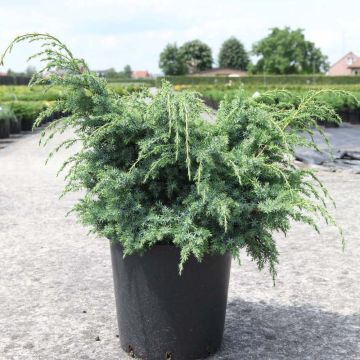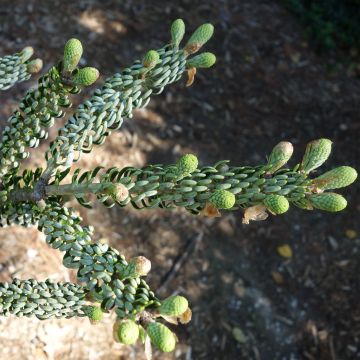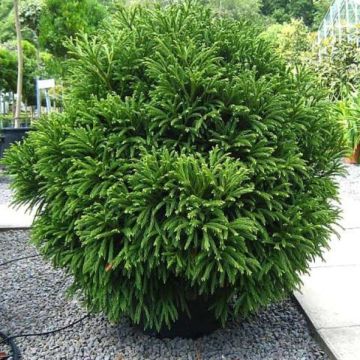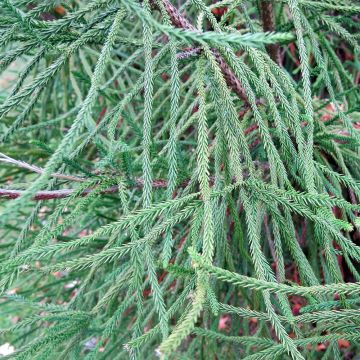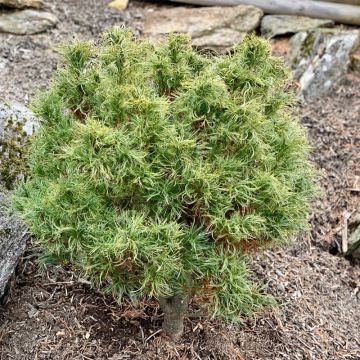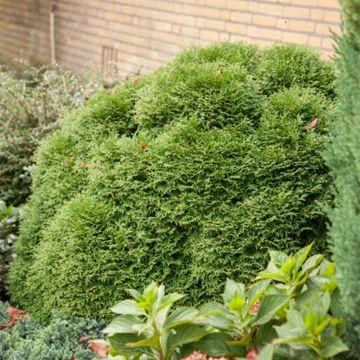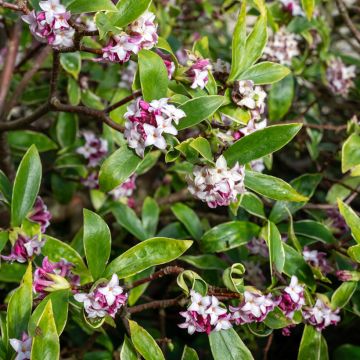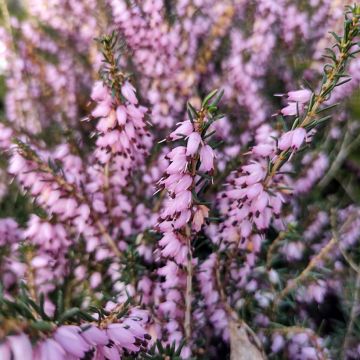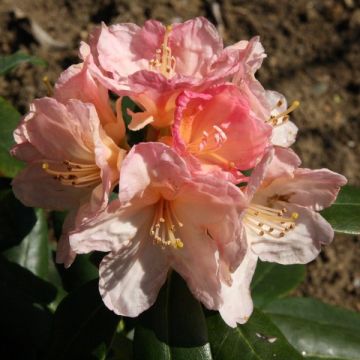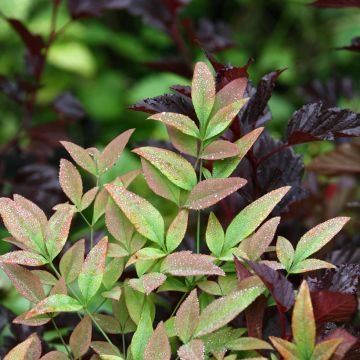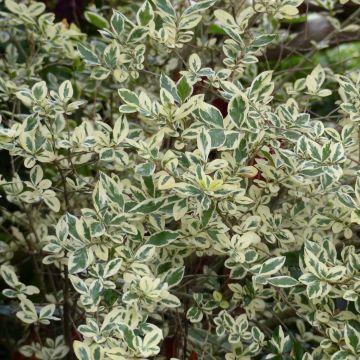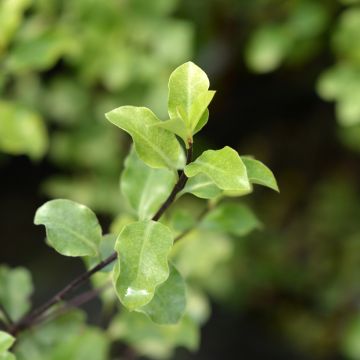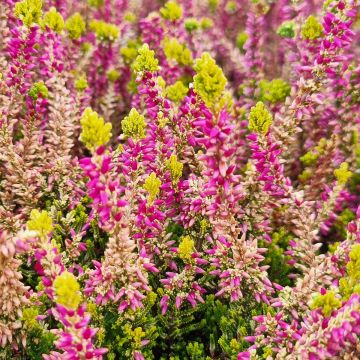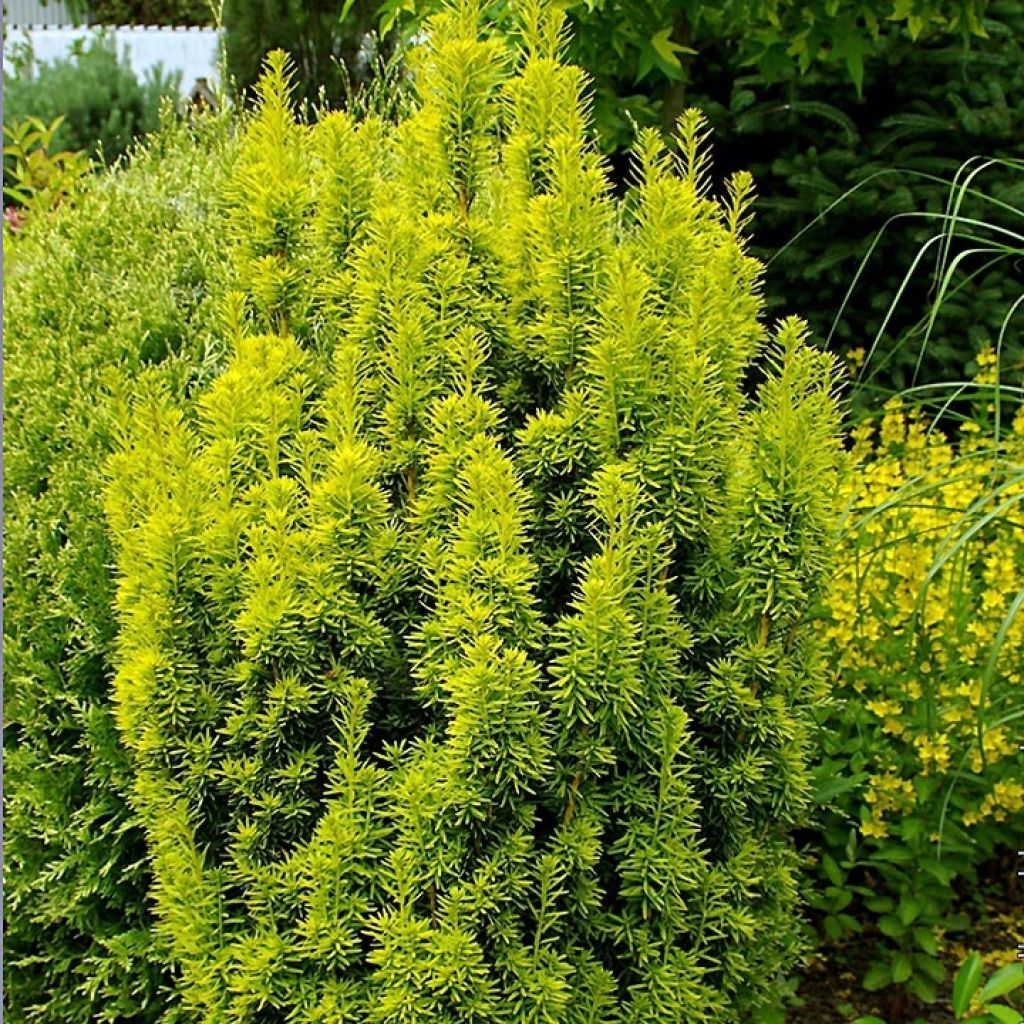

Taxus baccata David - Yew
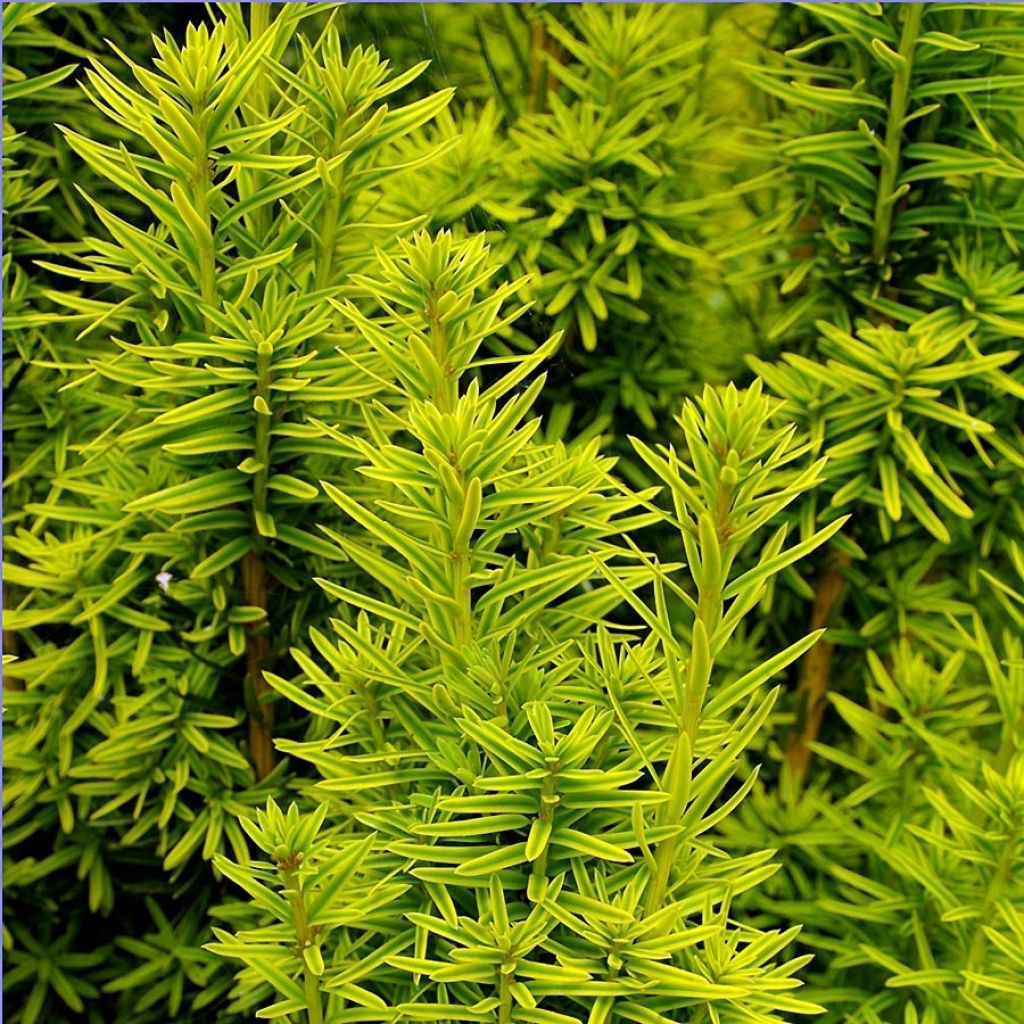

Taxus baccata David - Yew
Taxus baccata David - Yew
Taxus baccata David
Yew, Common Yew, English Yew, European Yew
Very beautiful young plant and received in good condition.
Patricia, 19/09/2022
Special offer!
Receive a €20 voucher for any order over €90 (excluding delivery costs, credit notes, and plastic-free options)!
1- Add your favorite plants to your cart.
2- Once you have reached €90, confirm your order (you can even choose the delivery date!).
3- As soon as your order is shipped, you will receive an email containing your voucher code, valid for 3 months (90 days).
Your voucher is unique and can only be used once, for any order with a minimum value of €20, excluding delivery costs.
Can be combined with other current offers, non-divisible and non-refundable.
Home or relay delivery (depending on size and destination)
Schedule delivery date,
and select date in basket
This plant carries a 24 months recovery warranty
More information
We guarantee the quality of our plants for a full growing cycle, and will replace at our expense any plant that fails to recover under normal climatic and planting conditions.

Would this plant suit my garden?
Set up your Plantfit profile →
Description
Taxus baccata 'David' is a variety of common yew with young golden foliage that is appreciated for its appearance of a small, narrow and bright column, perfectly suited for terraces and small gardens with a classical inspiration. This conifer, like all yews, has slow growth, requires little maintenance, and adapts to many growing conditions.
Very present in the oldest gardens and parks in Europe, Taxus baccata sometimes look down upon us for hundreds of years. Their longevity is indeed remarkable and they can live for several centuries. The species, which has become rare in nature, originated in Europe, Asia Minor, and North Africa. Impressive specimens can be admired in old gardens or cemeteries, planted near churches for symbolic reasons as yew is considered to be a link between heaven and earth. The needles, bark, and fruits are toxic to humans and animals, except for birds that consume the berries and discard the seeds. The common yew is a conifer of the Taxaceae family.
The 'David' cultivar sets itself apart with its small size, fastigiate and narrow habit, and bright yellow-green foliage. It has slow growth and will reach about 1.5 m (4 ft 11 in) in height and 80 cm (31.5 in) in diameter at maturity. Its short and upright branches and trunk are covered with a reddish-brown bark that peels off. Its twigs are adorned with flat and shiny needles with two white bands on the underside, with a pointed tip that is nevertheless very soft to the touch. Its young shoots are golden, gradually turning yellow-green in summer. It adds a presence throughout the seasons and often forms the backbone of the garden. It is a dioecious tree: individuals bear male or female flowers. Thus, red berries appear after a discreet flowering only on female plants.
Taxus baccata 'David', naturally elegant like all yews, will find its place in all gardens, small and large, and will adapt to all garden styles: strict, whimsical, classical, contemporary, mineral, slightly mystical or poetic. And even more so as this yew is not only very hardy but also accepts any type of soil: ordinary, slightly acidic or calcareous, moist or dry. It can be a beautiful solitary specimen or be accompanied by low shrubs, or even creeping ones that are similarly undemanding (Cotoneaster, chamaecyparis, and small junipers, Coprosma, etc.). It can also, if one is patient, be planted as a hedge or in a row along a pathway with a row of boxwood or myrtle in mild climates. Pruning is not necessary or is limited to one intervention per year, and it will successfully regenerate after a more severe pruning by penetrating the old wood. Indifferent to exposure, it can even be planted in shade in warm climates. Finally, yew can successfully replace cypress, which has faster growth but is susceptible to diseases and not well-suited to pruning.
Report an error about the product description
Taxus baccata David - Yew in pictures
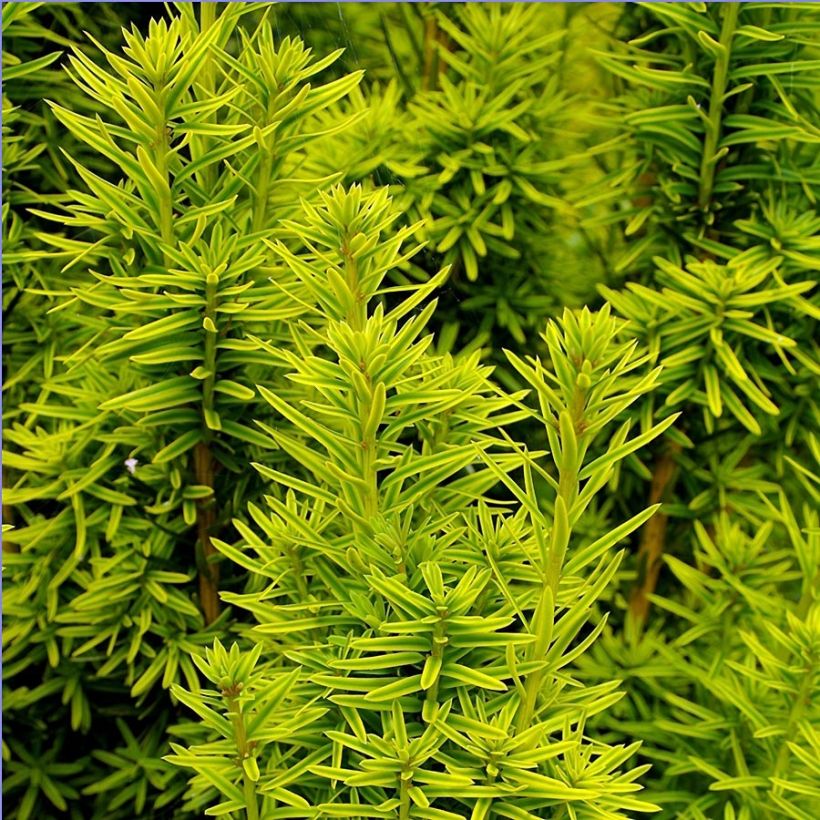

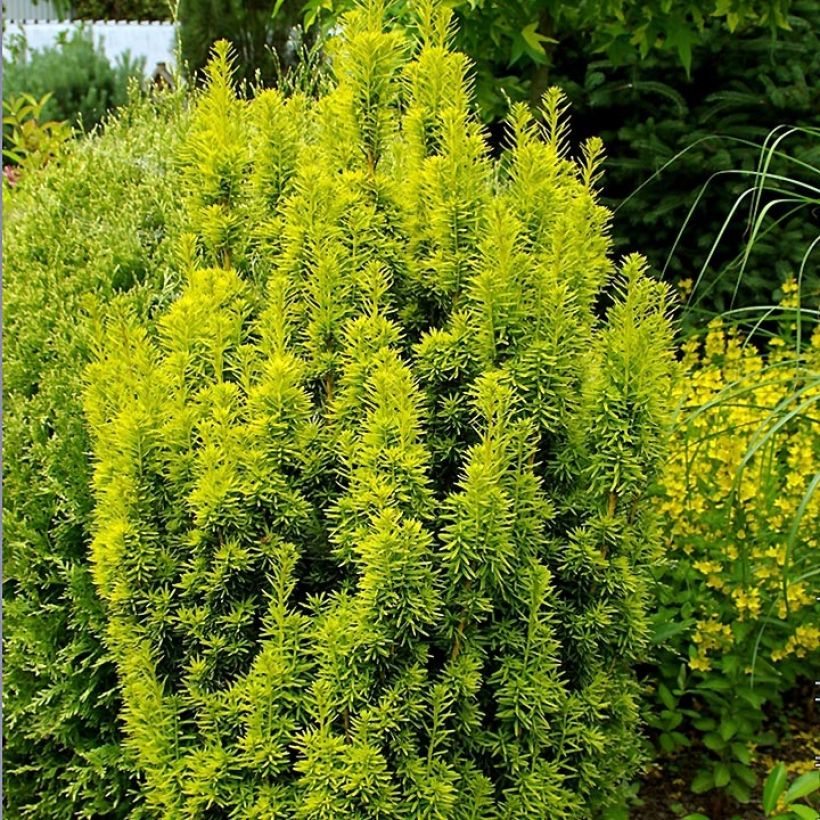

Plant habit
Flowering
Foliage
Safety measures
Botanical data
Taxus
baccata
David
Taxaceae
Yew, Common Yew, English Yew, European Yew
Cultivar or hybrid
ingestion
Cette plante est toxique si elle est ingérée volontairement ou involontairement.
Ne la plantez pas là où de jeunes enfants peuvent évoluer, et lavez-vous les mains après l'avoir manipulée.
Pensez à conserver l'étiquette de la plante, à la photographier ou à noter son nom, afin de faciliter le travail des professionnels de santé.
Davantage d'informations sur https://plantes-risque.info
Other Conifers A to Z
View all →Planting and care
The common yew 'David' is not demanding at all, and that is undoubtedly one of its most beautiful qualities. It thrives in ordinary soil that is well loosened when planting, slightly calcareous or acidic, and moist to dry in summer. This variety should preferably be planted in full sun or partial shade, as this exposure enhances the variegated foliage. It can be pruned twice a year, in spring and autumn (the latter allowing for readjustment of the former), in April and August (depending on your climate).
Planting period
Intended location
Care
-
, onOrder confirmed
Reply from on Promesse de fleurs
Similar products
Haven't found what you were looking for?
Hardiness is the lowest winter temperature a plant can endure without suffering serious damage or even dying. However, hardiness is affected by location (a sheltered area, such as a patio), protection (winter cover) and soil type (hardiness is improved by well-drained soil).

Photo Sharing Terms & Conditions
In order to encourage gardeners to interact and share their experiences, Promesse de fleurs offers various media enabling content to be uploaded onto its Site - in particular via the ‘Photo sharing’ module.
The User agrees to refrain from:
- Posting any content that is illegal, prejudicial, insulting, racist, inciteful to hatred, revisionist, contrary to public decency, that infringes on privacy or on the privacy rights of third parties, in particular the publicity rights of persons and goods, intellectual property rights, or the right to privacy.
- Submitting content on behalf of a third party;
- Impersonate the identity of a third party and/or publish any personal information about a third party;
In general, the User undertakes to refrain from any unethical behaviour.
All Content (in particular text, comments, files, images, photos, videos, creative works, etc.), which may be subject to property or intellectual property rights, image or other private rights, shall remain the property of the User, subject to the limited rights granted by the terms of the licence granted by Promesse de fleurs as stated below. Users are at liberty to publish or not to publish such Content on the Site, notably via the ‘Photo Sharing’ facility, and accept that this Content shall be made public and freely accessible, notably on the Internet.
Users further acknowledge, undertake to have ,and guarantee that they hold all necessary rights and permissions to publish such material on the Site, in particular with regard to the legislation in force pertaining to any privacy, property, intellectual property, image, or contractual rights, or rights of any other nature. By publishing such Content on the Site, Users acknowledge accepting full liability as publishers of the Content within the meaning of the law, and grant Promesse de fleurs, free of charge, an inclusive, worldwide licence for the said Content for the entire duration of its publication, including all reproduction, representation, up/downloading, displaying, performing, transmission, and storage rights.
Users also grant permission for their name to be linked to the Content and accept that this link may not always be made available.
By engaging in posting material, Users consent to their Content becoming automatically accessible on the Internet, in particular on other sites and/or blogs and/or web pages of the Promesse de fleurs site, including in particular social pages and the Promesse de fleurs catalogue.
Users may secure the removal of entrusted content free of charge by issuing a simple request via our contact form.
The flowering period indicated on our website applies to countries and regions located in USDA zone 8 (France, the United Kingdom, Ireland, the Netherlands, etc.)
It will vary according to where you live:
- In zones 9 to 10 (Italy, Spain, Greece, etc.), flowering will occur about 2 to 4 weeks earlier.
- In zones 6 to 7 (Germany, Poland, Slovenia, and lower mountainous regions), flowering will be delayed by 2 to 3 weeks.
- In zone 5 (Central Europe, Scandinavia), blooming will be delayed by 3 to 5 weeks.
In temperate climates, pruning of spring-flowering shrubs (forsythia, spireas, etc.) should be done just after flowering.
Pruning of summer-flowering shrubs (Indian Lilac, Perovskia, etc.) can be done in winter or spring.
In cold regions as well as with frost-sensitive plants, avoid pruning too early when severe frosts may still occur.
The planting period indicated on our website applies to countries and regions located in USDA zone 8 (France, United Kingdom, Ireland, Netherlands).
It will vary according to where you live:
- In Mediterranean zones (Marseille, Madrid, Milan, etc.), autumn and winter are the best planting periods.
- In continental zones (Strasbourg, Munich, Vienna, etc.), delay planting by 2 to 3 weeks in spring and bring it forward by 2 to 4 weeks in autumn.
- In mountainous regions (the Alps, Pyrenees, Carpathians, etc.), it is best to plant in late spring (May-June) or late summer (August-September).
The harvesting period indicated on our website applies to countries and regions in USDA zone 8 (France, England, Ireland, the Netherlands).
In colder areas (Scandinavia, Poland, Austria...) fruit and vegetable harvests are likely to be delayed by 3-4 weeks.
In warmer areas (Italy, Spain, Greece, etc.), harvesting will probably take place earlier, depending on weather conditions.
The sowing periods indicated on our website apply to countries and regions within USDA Zone 8 (France, UK, Ireland, Netherlands).
In colder areas (Scandinavia, Poland, Austria...), delay any outdoor sowing by 3-4 weeks, or sow under glass.
In warmer climes (Italy, Spain, Greece, etc.), bring outdoor sowing forward by a few weeks.






























